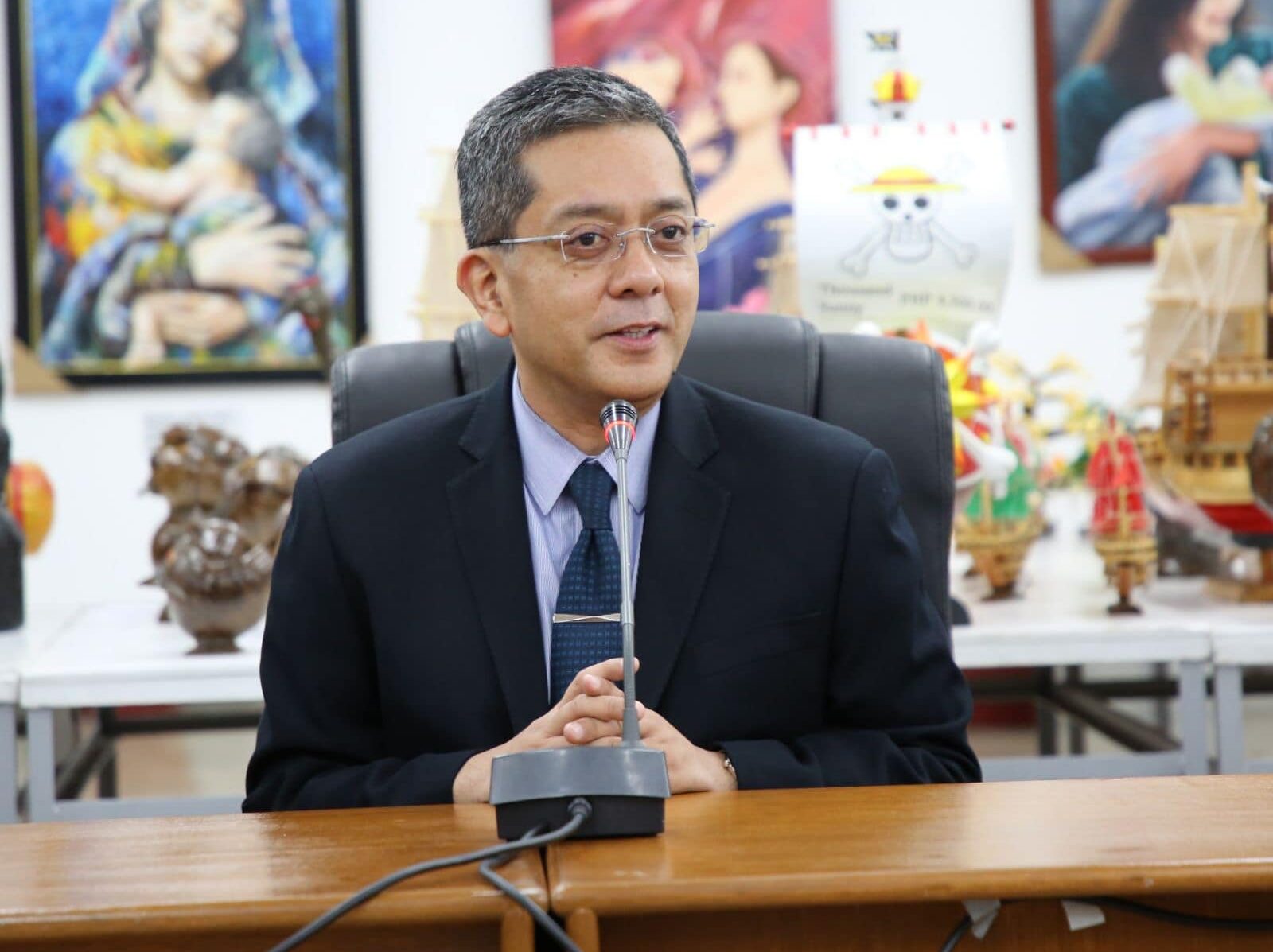Comelec not keen on changing quality of ballots for 2025 polls

FILE PHOTO: Commission on Elections (Comelec) Chairman George Erwin Garcia. | PHOTO: Official Facebook page of COMELEC
MANILA, Philippines — The Commission on Elections (Comelec) is not keen on changing the quality of the ballots for the 2025 elections despite the number of defective ballots printed, according to Comelec Chairman George Garcia on Tuesday.
Garcia said that a printed ballot is considered the most important document in an election.
“Hindi na baleng mataas ang defective ballots basta maganda ang quality ng mga balota,” Garcia said in an ambush interview.
(It’s better to have a high number of defective ballots, as long as the quality is good.)
READ: Comelec urges printers to lessen defective ballots
Garcia stated that many ballots are still of good quality when read by the printing machines. However, he said that if they do not pass the standards of the human verifiers, they can already be considered as “bad ballots” if they have smudges or “very small” dots or lines.
“Hindi pinag uusapan kung midterm election o presidential election. What’s important is dapat yung pinakanumber one na dokumento sa isang halalan, mataas ang quality,” he added.
(We’re not talking about the midterm or presidential elections. What’s important is that the number one document needed in an election is of good quality.)
Garcia also shared that based on an initial assessment, around 25-30 percent of the six million ballots that were already printed before the Supreme Court’s issuance of temporary restraining orders (TROs) are considered “defective.”
“Mapapababa natin yan ngayong maraming machines na yung nagagamit at nagiging mabilis na yung proseso so kahapon, napansin na walang ganung karaming napansing problema lalo na sa mga machines sa National Printing Office,” Garcia said, referring to the number of expected flawed printed ballots.
(We can bring it down because we are using many machines that can fast track the printing process so yesterday, we noticed that we did not encounter much problems, especially in the printing machines of the National Printing Office.)
READ: Comelec ‘partially terminates’ contract with election service provider
Garcia on Monday said that the Comelec would only pay for the “good ballots” while the National Printing Office and the Miru Systems, or the tapped automated elections systems provider, would shoulder the rejected ones.
The Comelec began printing ballots on January 6, but underwent delays thrice due to the TROs issued by the High Court, where it had to include the names of senatorial aspirants that were initially declared as nuisance candidates.


















